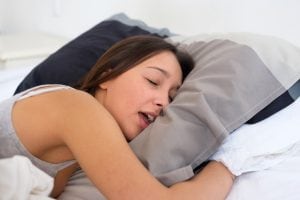Can Spring Weather Affect My Sleep Apnea?

What are Allergic Rhinitis Symptoms?
Allergens, which increase in the spring season, irritate and inflame the nasal passages, causing allergy symptoms (allergic rhinitis). You may be suffering from allergic rhinitis if you are experiencing:
- Itchy nose, mouth, eyes, and throat
- Stuffy/runny nose
- Problems with smelling
- Sniffling
- Sneezing
- Watery eyes
- Headache
- Trouble sleeping
When you’re experiencing congestion and swelling, it causes your upper airway to narrow. This narrowing can increase the risk of snoring and obstructive sleep apnea. If you’re already experiencing snoring or sleep apnea - allergic rhinitis can make these conditions worse.
Are There Adverse Effects from Lack of Sleep?
Allergic rhinitis can cause sleeping problems that affect your quality of sleep. This can cause many issues during the day because you aren’t getting a good night’s rest. You may feel excessively sleepy, fatigued, experience memory loss, and have difficulties concentrating. Your quality of life declines because it’s difficult to function properly during daylight hours.
How to Reduce Your Allergic Rhinitis Symptoms
You can reduce the symptoms of seasonal allergies you’re experiencing by:
- Staying indoors in the early morning and on windy days when there’s the highest pollen count
- Keeping your doors & windows closed to block pollen from entering
- Removing your clothing when you enter your home
- Washing your clothing and bedding often
- Using a humidifier to keep the air moist, which prevents your nasal passages and airways from drying out
- Taking antihistamines and nasal decongestants to help relieve symptoms
- Taking steamy showers to clear your sinuses
- Using a saline spray to clean and clear your nose
- Avoiding caffeine before bedtime
Oral Appliance Therapy: A Non-Drug Snoring and Sleep Apnea Solution
Oral Appliance Therapy (OAT) effectively treats snoring and obstructive sleep apnea (OSA) by keeping your airways open while you sleep. A custom-fitted oral sleep appliance improves your sleep, restores your alertness, and revitalizes your health. Oral Appliance Therapy is a good alternative if you have snoring issues or OSA and you can’t or won’t tolerate positive airway pressure therapy, such as CPAP or APAP.
Oral appliances are comfortable to use. Since they are not sold over the counter, they have to be prescribed by a doctor. To obtain an OAT, you’ll need a consultation with your doctor that includes a thorough dental examination.
If you are a good candidate for Oral Appliance Therapy, dental impressions of your upper and lower teeth will be taken along with a bite registration. Using this data, a custom snoring mouth guard is crafted. Since there are a variety of different types of oral appliances, this data will also help your doctor determine which appliance is best suited for your specific needs.
Take The Next Step To A Good Night’s Sleep: Find Out More Information On Oral Appliance Therapy
If you are interested in learning more about Oral Appliance Therapy for snoring or sleep apnea in Philadelphia, schedule an appointment today with eos dental sleep. We're experts for the treatment of snoring and sleep apnea.
